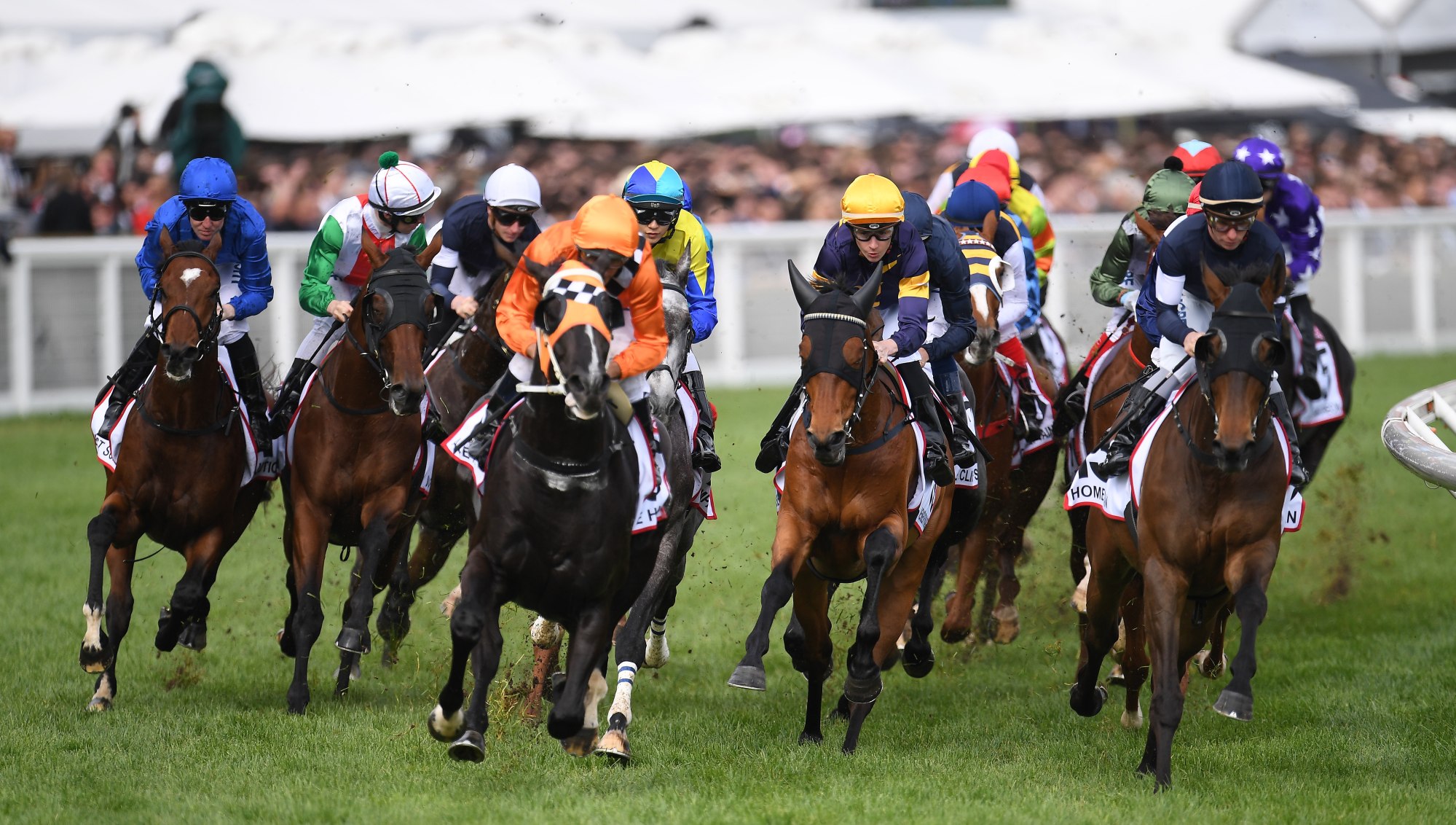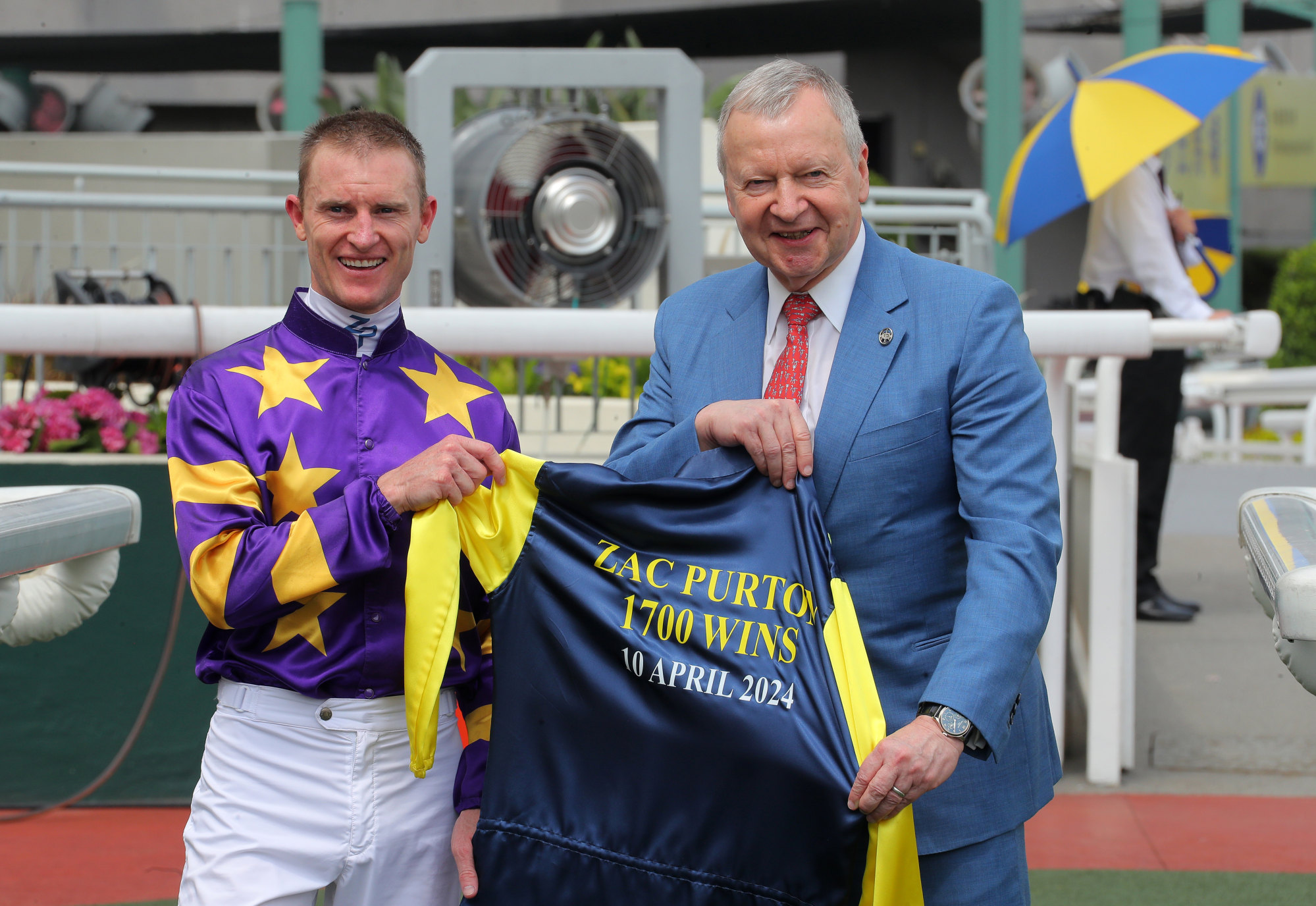Hong Kong-based riders are in demand. At a time when the Jockey Club is all in on the World Pool, this can only be a good thing, right?
Largely, yes. However, when as many as five members of the Hong Kong weighing room fly to Australia in the hope of celebrating top-level success next Saturday, the club will be exposed to a level of risk not seen in years.
“I’ve been here 12 years and I’ve never encountered it. I’ve never had more than three who want to go,” said Jockey Club executive director of racing Andrew Harding.
Jockey Club chief executive Winfried Engelbrecht-Bresges admits there is “a little bit of a concern” with so many of his riders jetting overseas a day before the Group Two Premier Bowl (1,200m) at Sha Tin.
How's that for a finish?!
— SKY Racing (@SkyRacingAU) October 5, 2024
Land Legend and Zardozi hit the line as one...
and it's Land Legend with Reece Jones in the saddle, who gets his first G1 in The Metropolitan! 🙌@aus_turf_club | @cwallerracing pic.twitter.com/NagOHmWt7r
Zac Purton (Land Legend), Andrea Atzeni (Zardozi), Ben Thompson (Sayedaty Sadaty) and Karis Teetan (Coco Sun) will head to Melbourne for the Caulfield Cup (2,400m), while Brenton Avdulla may land in Sydney for Australia’s richest race, The Everest, for the ride on Storm Boy in the 1,200m feature.
That makes up nearly a quarter of the riding roster and, while the risk of those jockeys not making it back for Sunday’s fixture is slim, it still exists.
Look at the flight-diversion debacle of 2015, where Joao Moreira and Zac Purton ended up stranded in Taiwan instead of riding at Sha Tin after the plane bringing them from Sydney was diverted because of wild typhoon conditions.
Then there’s the possibility of suspension. Douglas Whyte was famously suspended for a month for failing to ride a horse out in Perth in 2016, while the careless riding ban Hugh Bowman picked up at Randwick last October caused him to miss two Hong Kong meetings.

“We want to give them as much opportunity as possible but being licensed here – given we have a defined roster of jockeys – they have an obligation to owners and trainers,” Harding said.
The bottom line is that the club cannot have jockeys heading in and out of Hong Kong as they please, bringing “the risk of suspension, injury and all those things that are not always in the club’s best interests or the interests of owners and trainers”.
There is certainly a delicate balancing act at play for the club.
“There is a certain risk and this is a little bit of a concern,” Engelbrecht-Bresges said. “But, for certain races, especially World Pool races, we want to be more flexible.

“We have to balance the risk because we ask jockeys to come here and the Caulfield Cup is a very prestigious race. We also look at the weather forecast and at the moment there is nothing that indicates there is a risk on that front.”
Traditionally, jockeys have been permitted to ride overseas in a top 100 Group One race or a contest that is being simulcast by the club, which promotes the sport globally, increases betting interest in the city and can draw eyeballs to the Hong Kong product.
And, as far as lifting the reputation of Hong Kong racing goes, having four riders in the Caulfield Cup and potentially another in The Everest is surely only a good thing, especially after a period of travel restrictions during Covid.
After all, the flexibility to ride in the biggest races around the world was a key plank in attracting and retaining top-end talent during those pandemic years.

When the jockeys head to Australia next weekend, overseas bookmakers make it around a $3 shot that a Caulfield Cup trophy will be heading back to Hong Kong, while Avdulla is $15 to taste success in The Everest.
While it might not be the most comfortable position for the club, the goodwill it fosters among the riding ranks, the positive impact it has on turnover and the very real chance it will elevate Hong Kong racing mean it’s hard to see it being anything but a net positive.
“No risk, no return,” said Engelbrecht-Bresges.



















